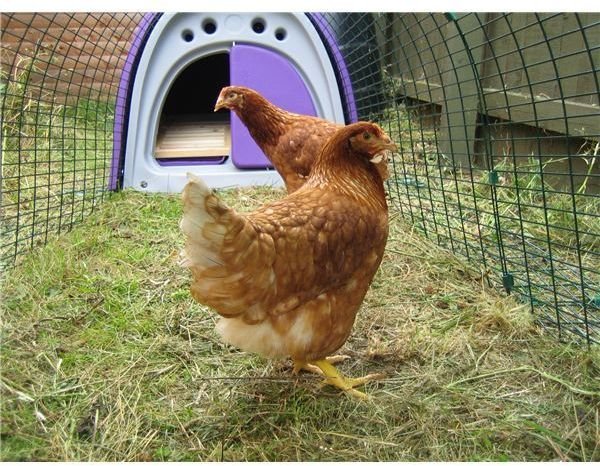Caring for Chickens in the Winter: Do They Need Supplemental Light to Produce Eggs?
Egg Production
The egg production of chickens is very much reliant on general good care, but also relies heavily on the amount of available light. Chickens need light in the winter to produce eggs, but they need light all year round. It is only when the amount of daylight hours reduces in the winter months that you may notice a difference in your hen’s egg production.
Egg production can fluctuate due to a variety of factors, not just the amount of light they receive. If you are raising chickens for eggs, you will notice that a chicken will naturally stop laying as frequently, the older she gets, when she goes through a molting period, or is unwell. It is not unusual for a chicken to stop laying altogether in the winter months, if they only have access to natural light, but usually you will just notice a decline and in either case once spring rolls around, normal egg production should resume.
Wintertime Care of Chickens
In terms of keeping your chickens warm, there is very little you need to do for your chickens in the colder months, as they naturally huddle together to share their body heat when they are in the coop at nighttime. Adding some extra bedding, such as straw is a good idea to make them more comfortable though.
You may also want to consider the use of a poultry wattle and comb protector for the winter, as in extremely cold weather a chicken’s wattle and comb can be susceptible to frostbite - just a thin coating applied regularly will keep your chickens protected.
A mineral supplement is an especially good idea, especially if your chickens are molting, which they are inclined to do when it gets cold - look in the pet store for chicken spice, or poultry spice.
The use of citricidal (extract of grapefruit seed) has been validated by the FDA as an anti-viral to cure colds, and two drops in a pint of water will help protect your chickens, as will the addition of cider vinegar. Cider vinegar works as a general tonic and maintains a healthy appetite as well as keeping feathers in good condition - just 4 teaspoons to 2 pints of water is the ideal mix.
Not only will all these measures have a positive impact on your chickens in the wintertime, but will also keep them in tip-top condition when it comes to egg laying.
See the Light, Get More Eggs
If egg production is of prime importance to you, then the use of supplemental lighting may help, but once you start this process of giving your chickens extra light in winter you will need to keep it up until spring. Any fluctuation in this process will have a negative rather than a positive impact on your hens and their laying, even if you lapse for just a day. To maintain a steady egg production, your chickens will need more than 12 hours of light a day; between 14 and 16 hours is the ideal. The type of bulb you use does not matter, just as long as it is bright enough to be able to read a newspaper. To make sure the lighting is kept at the same level everyday, the use of a timer is a good idea, so the light can go on and off whenever you program it to.
Extra light during the winter is not a necessity unless you want to achieve steady egg production. However if you are keeping your chickens as free range pets you may be happy for them to continue their natural season of molting and resting their egg production in the winter, for the laying to produce even more wonderful eggs when spring rolls around again.
References
- Omlet, www.omlet.co.uk
- Poultry for Anyone by Victoria Roberts
- Image copyright of the author.
- Factors Affecting Egg Production in Backyard Chicken Flocks, University of Florida, http://edis.ifas.ufl.edu/ps029
